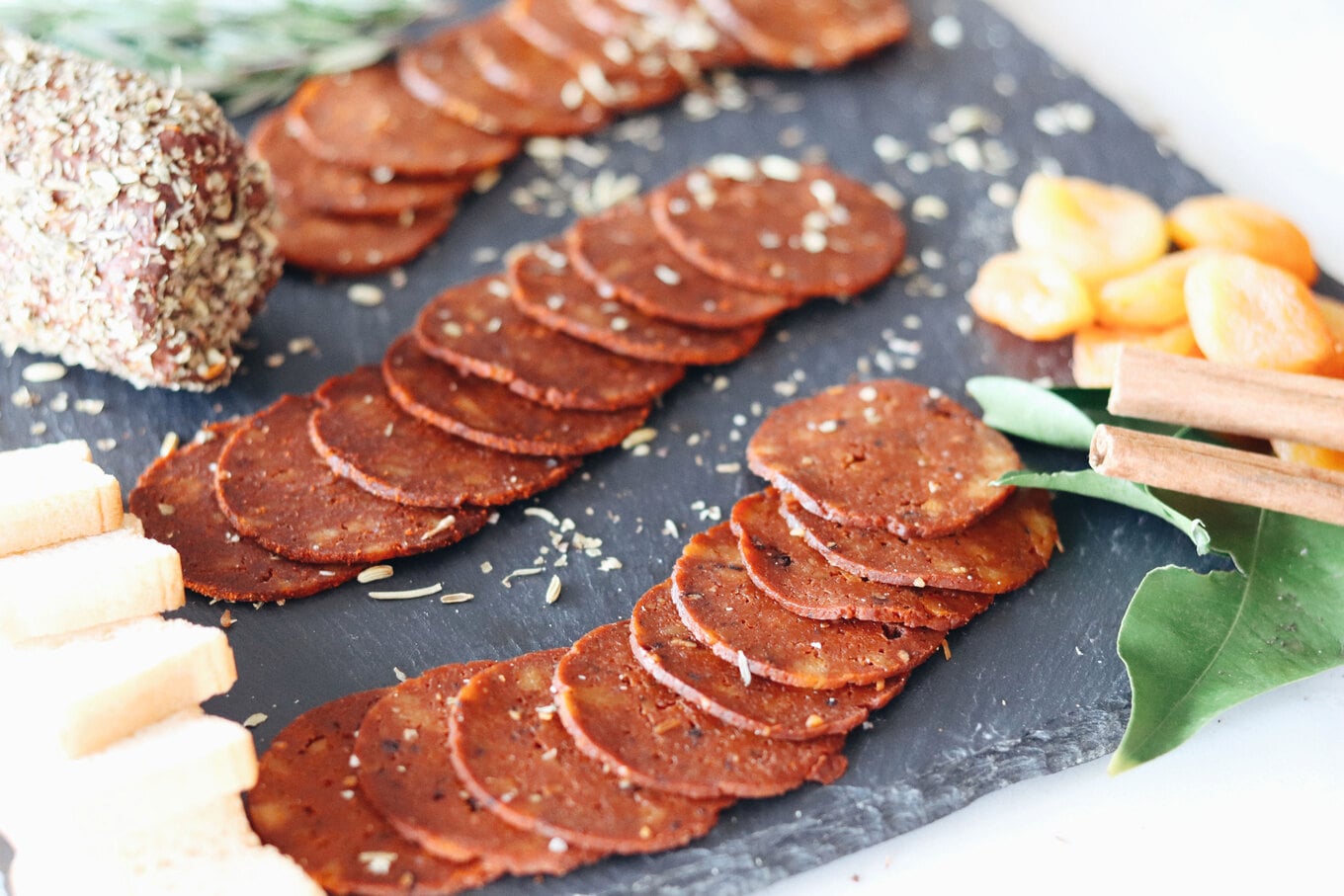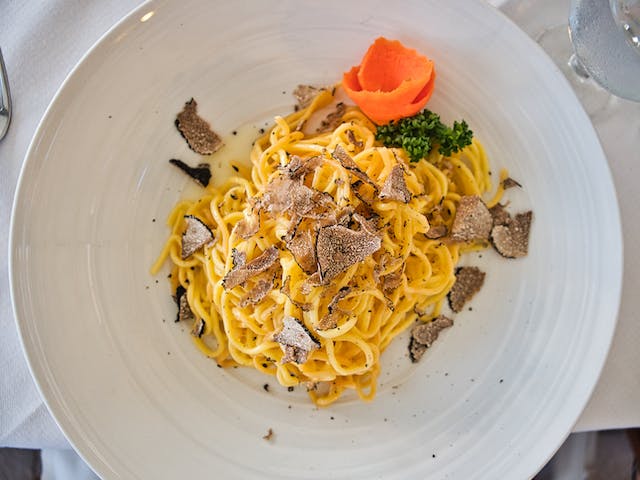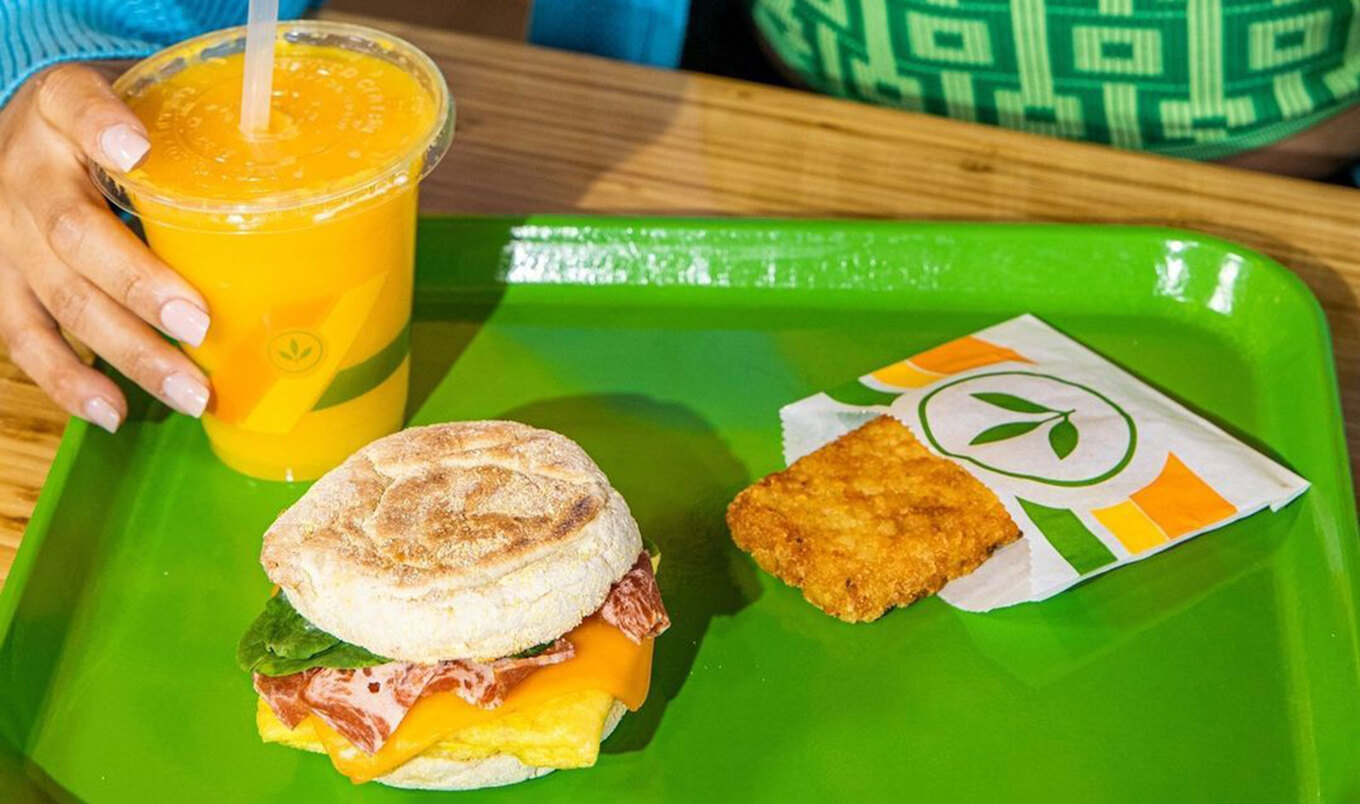United Kingdom-based brand Oggs has reduced the need for more than five million chicken eggs since its launch in 2019.
Founded by British entrepreneur Hannah Carter, Oggs is on a mission to remove the unnecessary and unethical egg products within our food chain. The company’s range of plant-based egg alternatives include vegan scramble; aquafaba (the brine from cooked chickpeas), which can replace egg whites in baking without the need for emulsifiers; and bakery products such as cakes, cupcakes, and brownies that are made with its aquafaba instead of animal-based eggs.
Oggs
To date, Oggs says it has saved more five million eggs, given 870,000 chickens “the week off,” and saved the equivalent of 292 metric tons of CO2 emissions—the same as almost 300 flights from the UK to New York.
“Since day one our mission here at Oggs has been to reduce the need for unnecessary eggs in the food chain,” Carter said in a statement. “Hitting the five million eggs saved mark is a huge achievement for our incredible team, but it’s just the start.”
“We’re looking forward to continuing to work with retailers, restaurants, and manufacturers to make an even bigger difference—and keep giving chickens the week off.”
Oggs Aquafaba is a plant-based egg alternative for baking with 72 percent less CO2 emissions and 96 percent less saturated fat than eggs. Launched into grocery stores in the UK in 2020, the product is now used across food manufacturing to improve nutrition and environmental credentials.
The brand’s latest offering, Scrambled Oggs, is a plant-based egg alternative that can be poured straight into a pan and scrambled, as well as used to make quiches, omelets, and Yorkshire pudding. Scrambled Oggs is available in Waitrose and Sainsbury’s in the UK, as well as on the menu in restaurants, including Bill’s and Wagamama.
Table of Contents
Why replace chicken eggs?
The rising cost of chicken eggs is not the only reason consumers might be considering seeking out plant-based egg alternatives. When it comes to health, chicken eggs contain cholesterol. In fact, one large egg contains 200 mg of it. While necessary for several bodily functions, eating excess cholesterol can build up in arteries causing partial or complete blockages that lead to heart disease.
According to a 2021 study published in PLOS Medicine, eating three eggs a week (which adds around 300 milligrams of cholesterol) raises the risk of premature death by around one-fifth. “Intakes of eggs and cholesterol were associated with higher all cause, cardiovascular disease and cancer mortality,” the study’s co-author, Zhejiang University’s Professor Yu Zhang, said in a statement.
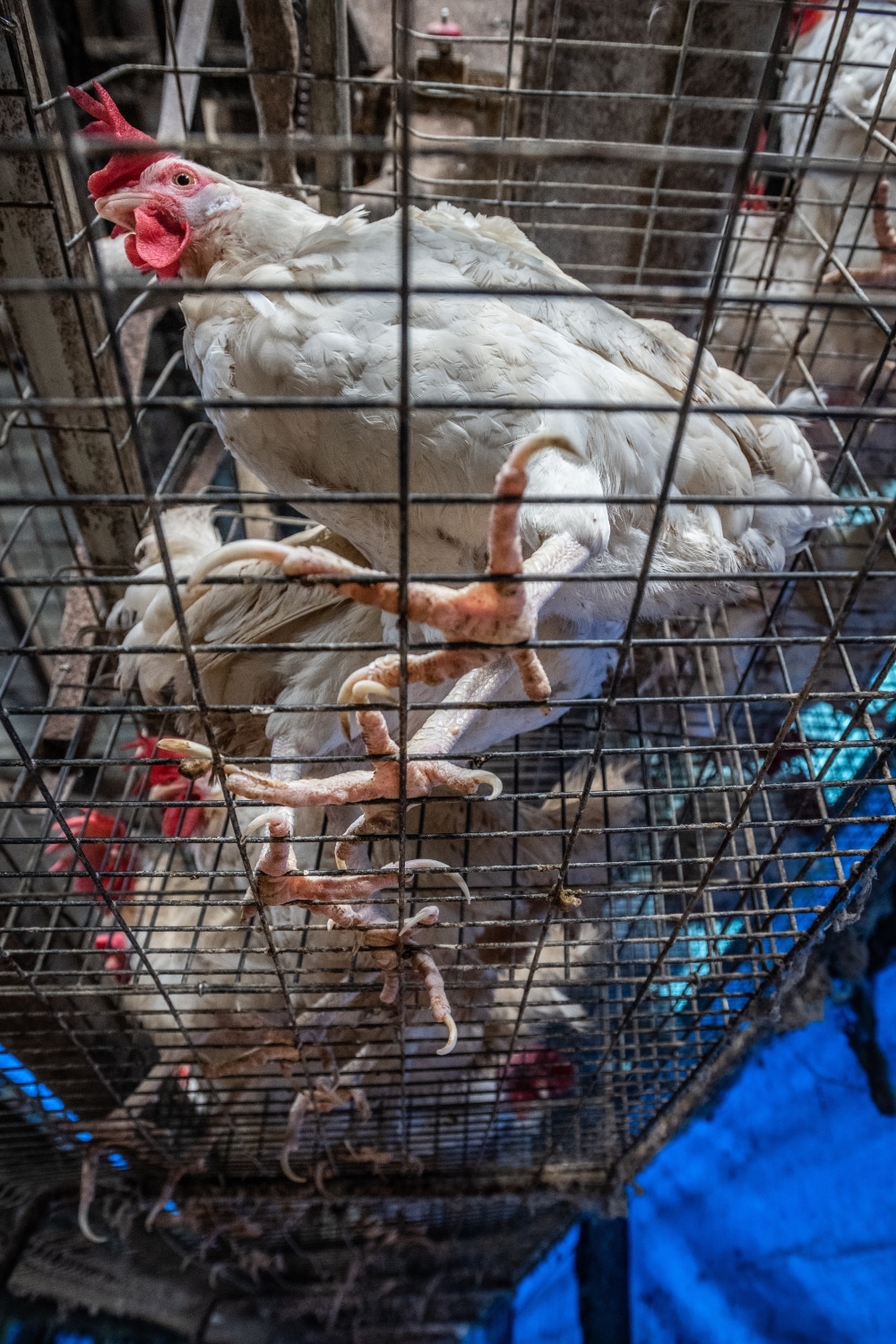
Unsplash
There’s also the animal welfare component of the egg industry: Everyday eggs are typically produced by chickens kept in battery cages. These wire cages are used to confine hens in large-scale animal agriculture operations.
Multiple hens are packed into these wire units, and while they do have room to turn around, they cannot spread their wings or walk off the nervous energy that comes with being packed into a poorly ventilated warehouse with hundreds of other anxiety-stricken birds. To decrease injury to one another, hens have their beaks “trimmed” by a laser when they are chicks.
“At a time when all hens on British egg farms are locked inside crowded sheds 24 hours a day due to the growing global threat of bird flu, it’s fantastic to have Oggs offering people an easy and delicious way to avoid this cruelty and pandemic risk without sacrificing their favorite foods,” Toni Vernelli, International Head of Communications and Marketing at Veganuary, said in a statement.
Vegan egg alternatives
Today, there is an ever-growing range of alternatives to chicken eggs. Vegan brand Eat Just was one of the first to enter the space with its pourable, mung bean-based Just Egg, which continues to dominate the category.
But, in addition to Oggs and Eat Just, there are plenty of other brands that are working towards the same goal of removing chicken eggs from the food chain.
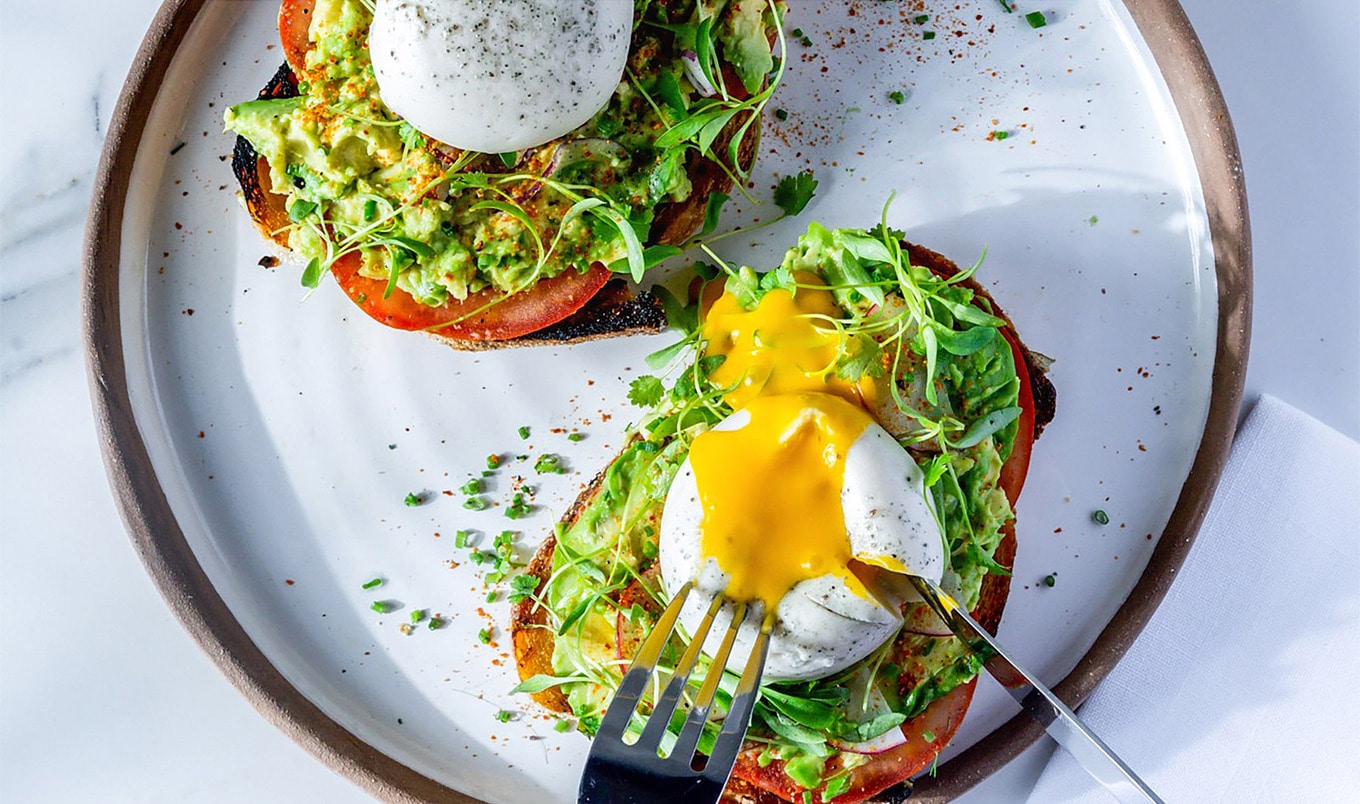 Yo! Egg
Yo! Egg
Although many brands have created powdered and liquid varieties for cooking and baking, other startups are now working on the vegan whole egg. Yo! Egg, created by famed Israeli chef Yosefa Ben Cohen and co-founder Eran Groner, is an animal-free whole egg—complete with a runny yolk. It is made with common ingredients such as chickpeas, sunflower oil, water, and soy, and it could be the first poached egg alternative that actually tastes and performs like the real thing.
Yo! Egg just recently launched in the United States, starting with restaurant menus in Southern California before expanding availability nationwide in foodservice businesses such as independent restaurants and chains and university campuses.
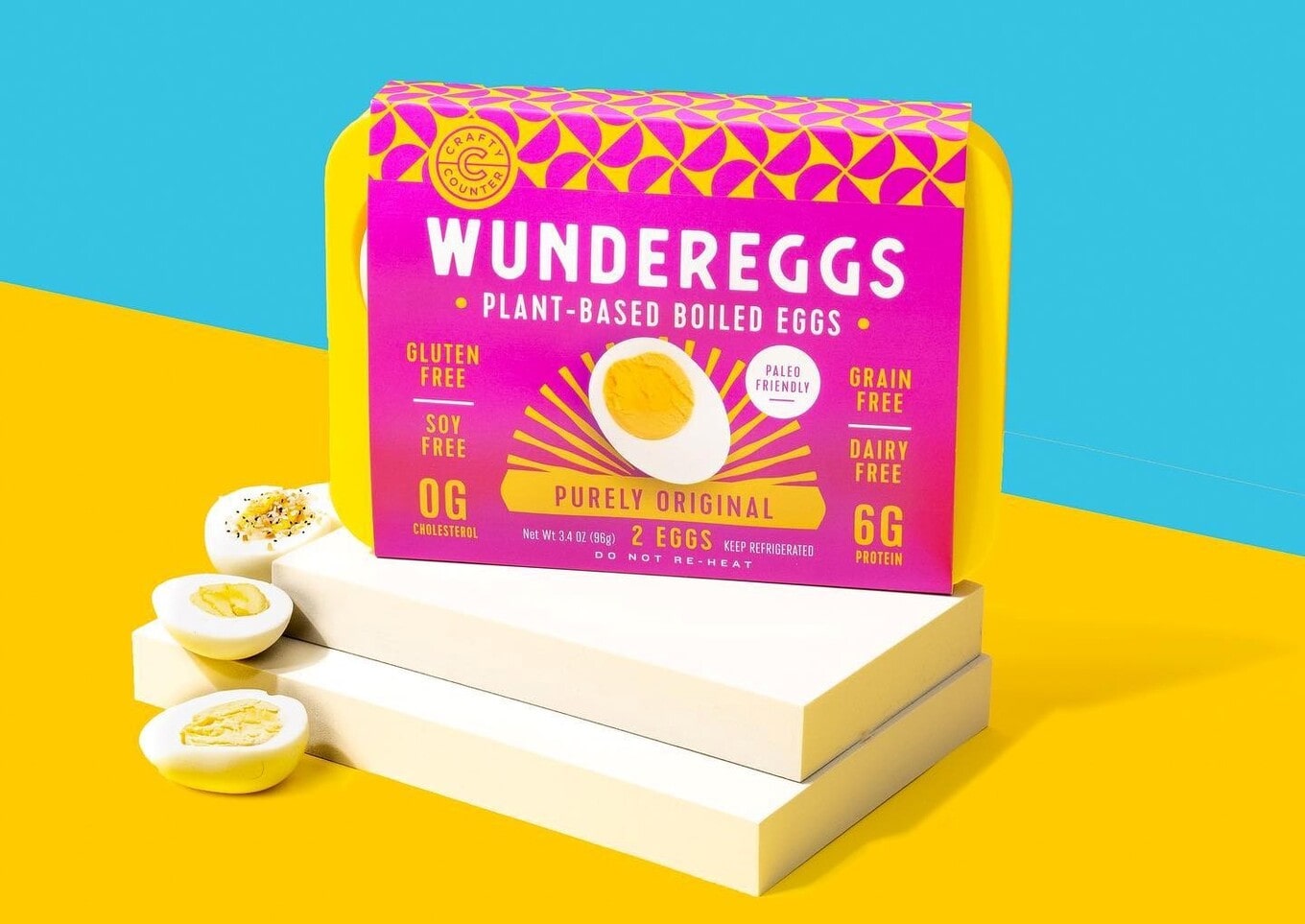 Crafty Counter
Crafty Counter
And then there is WunderEgg, made by Crafty Counter, which has successfully replicated a hard-boiled egg. Crafty Counter founder and CEO Hema Reddy created the WunderEgg during the first two weeks of COVID-19 pandemic when the country’s food system began to break down.
Packaged in whole form without the shell, this product looks, tastes, and feels just like a hard-boiled egg and recently became available at Whole Foods Markets nationwide.


